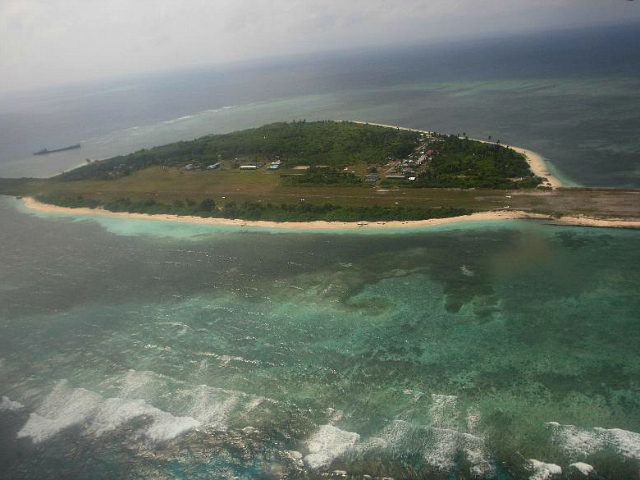On the eve of a major joint military exercise between the U.S. and Southeast Asian nations, the U.S. State Department accused China of deliberately blocking access to trillions of dollars in oil and natural gas resources that rightly belong to other nations.
State Department spokeswoman Morgan Ortagus referred primarily to Vietnam’s dispute with China in her statement on Thursday, saying:
The United States is deeply concerned that China is continuing its interference with Vietnam’s longstanding oil and gas activities in Vietnam’s Exclusive Economic Zone (EEZ) claim. This calls into serious question China’s commitment, including in the ASEAN-China Declaration on the Conduct of Parties in the South China Sea, to the peaceful resolution of maritime disputes.
China’s redeployment of a government-owned survey vessel, together with armed escorts, into waters offshore Vietnam near Vanguard Bank on August 13, is an escalation by Beijing in its efforts to intimidate other claimants out of developing resources in the South China Sea (SCS).
In recent weeks, China has taken a series of aggressive steps to interfere with ASEAN claimants’ longstanding, well-established economic activities, in an attempt both to coerce them to reject partnerships with foreign oil and gas firms, and to work only with China’s state-owned enterprises. In the case of Vanguard Bank, China is pressuring Vietnam over its work with a Russian energy firm and other international partners.
China’s actions undermine regional peace and security, impose economic costs on Southeast Asian states by blocking their access to an estimated $2.5 trillion in unexploited hydrocarbon resources, and demonstrate China’s disregard for the rights of countries to undertake economic activities in their EEZs, under the 1982 Law of the Sea Convention, which China ratified in 1996.
Ortagus declared the United States “strongly opposes any efforts by China to threaten or coerce partner countries into withholding cooperation with non-Chinese firms, or otherwise harassing their cooperative activities.”
The “continuing interference” criticized by the State Department involves China’s habit of sending “survey ships” to cruise over valuable resource deposits in contested territories, undermining the claims of other Asian nations to those waters and making it impossible for them to extract the resources.
Vietnam’s exclusive economic zone has been repeatedly violated by a Chinese geological survey ship named Haiyang Dizhi 8, escorted by armed Chinese Coast Guard vessels.
The Vietnamese government has ordered the Chinese ship to depart and has threatened to bring up its incursions with the U.N. Security Council and international courts. Rare public protests against China have been held in Vietnamese cities as the confrontation drags on. China responded by essentially telling Vietnam to get used to having Chinese survey vessels and military escorts in their waters because Beijing claims 90 percent of the South China Sea.
Vietnamese Prime Minister Nguyen Xuan Phuc met with Australian Prime Minister Scott Morrison in Hanoi on Friday, producing a joint statement of concern about “disruptive activities in relation to long-standing oil and gas projects in the South China Sea.”
The statement did not name China or condemn any specific incidents, but Phuc’s remarks left no doubt about where all the disruption is coming from.
“We are deeply concerned about the recent complicated developments in the East Sea and agree to cooperate in maintaining peace, stability, security, safety and freedom of navigation and overflight,” he said. “East Sea” is Vietnam’s preferred term for the South China Sea.
The Chinese Foreign Ministry responded to the Phuc-Morrisson statement by calling on “relevant parties” to “respect China’s sovereignty” and “work with China to maintain harmony and tranquility of the waters.” In other words, China told the Vietnamese to settle down and submit to Beijing’s territorial claims.
The Association of Southeast Asian Nations (ASEAN) is scheduled to hold its first joint military exercise with the U.S. Navy on September 2 in the Gulf of Thailand, which is adjacent to the South China Sea. Although ASEAN has also held goodwill joint exercises with the Chinese navy, the upcoming exercise is reportedly seen by members such as Vietnam and the Philippines as a message to China about the association’s determination to protect freedom of navigation and the territorial claims of its membership.

COMMENTS
Please let us know if you're having issues with commenting.